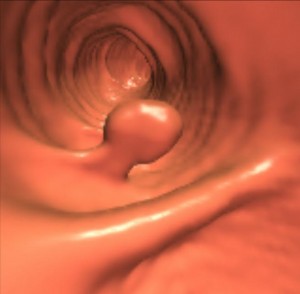California-based researchers reported in the August issue of the medical journal Radiology about a study involving CT colonography, also known as “virtual colonoscopy”. This utilizes CT scanning. Dr.Yee, from the University of California School of Medicine, San Francisco, did a prospective study where 500 men were studied with an average age of 62.5 years.
200 of them had an average risk for colon cancer; the remainder was at a high risk for colon cancer. The surprising finding was that many disease conditions were found (315 patients or 63%) that were not related to the colon at all, such as renal cysts and hiatal hernias. These were considered to be clinically not important. However another 50 patients (8.4%) were found to have liver lesions, pulmonary nodules, aneurysms and renal tumors, which were largely unknown and were thought to be clinically very significant.
Dr. Judy Yee said that it takes a trained radiologist to interpret these CT scan findings, but that this method of screening would be very cost effective. Looking for the additional life threatening conditions in the routine virtual colonoscopy added only about 28 $ per CT examination and was considered to be very cost effective. The clinically important extra-findings were equally distributed between the high and low risks for colon cancer. Dr. Yee summed up by saying that she hopes that many more Americans would come in for virtual colonoscopy as part of colorectal cancer screening.
The advantage is that this is less invasive than a conventional colonoscopy procedure, but at the same time that colon cancer is screened for the radiologist may pick up other clinically relevant medical problems.
More info about colon cancer: http://nethealthbook.com/cancer-overview/colon-cancer/
Reference: Radiology 2005;236:519-526.
Last edited October 29, 2014






